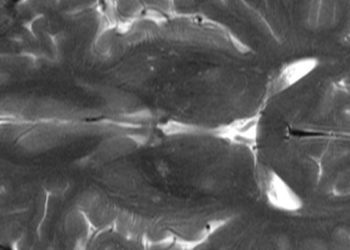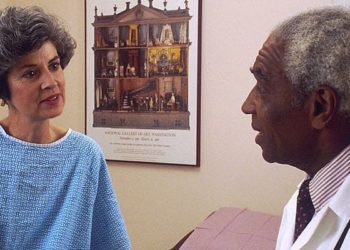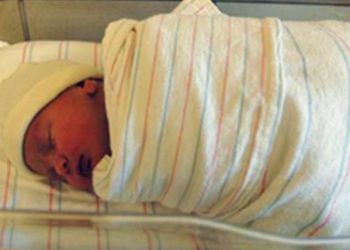Arsa-cel preserves motor and cognitive function in metachromatic leukodystrophy
1. In this prospective cohort study, treatment with atidarsagene autotemce (arsa-cel) significantly reduced the risk of severe motor impairment and death in patients with early-onset metachromatic leukodystrophy (MLD) subtypes.
2. Arsa-cel demonstrated a favorable safety profile, with no treatment-related serious adverse events or deaths reported.
Evidence Rating Level: 2 (Good)
Study Rundown: MLD is an autosomal recessive disorder caused by a deficiency of the enzyme arylsulfatase A (ARSA). This deficiency leads to lysosomal dysfunction and the accumulation of sulfatides in both the central and peripheral nervous systems, resulting in progressive neurodegeneration marked by cognitive and motor decline. Early-onset subtypes include late-infantile MLD, before 30 months of age, and early-juvenile MLD, between 30 months and seven years of age. While allogeneic hematopoietic stem cell transplantation has shown benefit in late-onset MLD, the only approved treatment for early-onset MLD is atidarsagene autotemcel (arsa-cel or OTL-200), a CD34+ hematopoietic stem and progenitor cell-based therapy that provides constitutive ARSA expression. This study evaluated the safety and efficacy of arsa-cel therapy in patients with early-onset MLD. Treatment with arsa-cel significantly reduced the risk of severe motor impairment or death in patients with presymptomatic late-infantile, presymptomatic early-juvenile, and early-symptomatic early-juvenile MLD. In addition, arsa-cel demonstrated protection of neurocognitive function, with most treated patients retaining normal cognition and speech regardless of MLD subtype. Importantly, no treatment-related serious adverse events or deaths were reported. Moreover, although anti-ARSA antibodies were detected in a small subset of patients, they did not impact clinical outcomes. While the study did not explicitly discuss its limitations, it was constrained by a small sample size; notably, there were only eight patients in the arsa–cel–treated presymptomatic early-juvenile subgroup. Nonetheless, arsa-cel appears to be a promising therapy for early-onset MLD, with the potential to delay both motor and cognitive decline.
Click here to read the study in NEJM
Relevant Reading: Newborn Screening and Presymptomatic Treatment of Metachromatic Leukodystrophy
In-Depth [prospective cohort]: In this prospective cohort study, the efficacy and safety of arsa-cel for early-onset MLD were evaluated. Data from two prospective clinical trials involving arsa-cel therapy (arsa-cel cohort) were compared with data from untreated patients (natural history cohort). Patients were eligible if they had a confirmed biochemical and genetic diagnosis of MLD classified as presymptomatic late-infantile, presymptomatic early-juvenile, or early-symptomatic early-juvenile. A total of 49 patients were included in the natural history cohort, and 39 patients were enrolled in the arsa-cel cohort, although two were excluded from analysis. The primary outcome was survival free from severe motor impairment, defined as loss of locomotion and sitting without support (Gross Motor Function Classification in MLD level ≥5) or death. Arsa-cel significantly reduced the risk of severe motor impairment or death in patients with presymptomatic late-infantile MLD (p<0.001), presymptomatic early-juvenile MLD (p=0.04), and early-symptomatic early-juvenile MLD (p<0.001). All arsa–cel–treated patients with late-infantile MLD survived without motor impairment to age 6, whereas 100% of patients in the natural history cohort experienced severe motor impairment by that age. Similarly, 87.5% (95% CI, 38.7 to 98.1) of presymptomatic early-juvenile MLD patients and 80.0% (95% CI, 40.9 to 94.6) of early-symptomatic early-juvenile MLD patients treated with arsa-cel survived to age 10 without severe motor impairment, compared to only 11.2% (95% CI, 0.9 to 36.4) of patients in the natural history cohort. At the last neurocognitive assessment, 27 of 34 surviving arsa–cel–treated patients had retained normal cognition, whereas untreated patients exhibited severe cognitive decline. Although 15% of treated patients developed anti-ARSA antibodies, these were not associated with adverse clinical outcomes. No treatment-related serious adverse events or deaths were reported. In summary, arsa-cel appears to be an effective and safe therapy for early-onset MLD, with the potential to delay both motor and cognitive decline.
Image: PD
©2025 2 Minute Medicine, Inc. All rights reserved. No works may be reproduced without expressed written consent from 2 Minute Medicine, Inc. Inquire about licensing here. No article should be construed as medical advice and is not intended as such by the authors or by 2 Minute Medicine, Inc.









